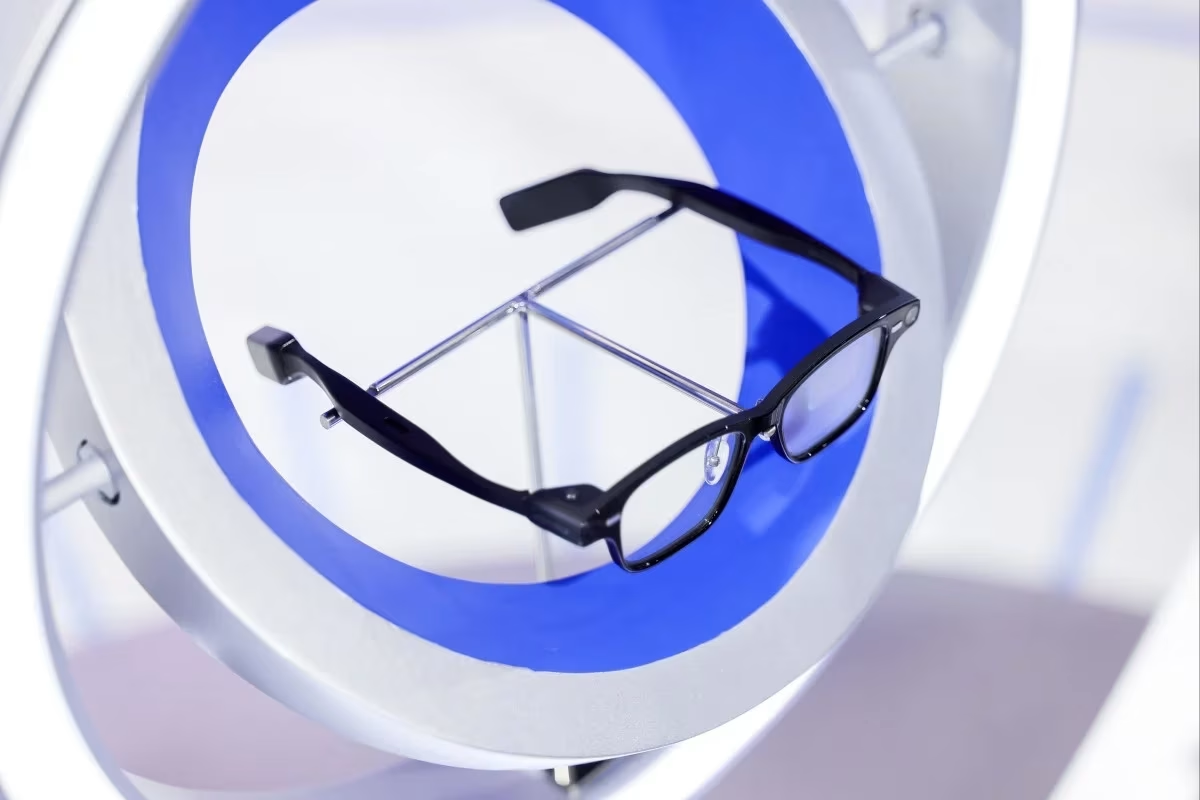Alibaba Unveils First AI-Powered Glasses, Intensifying China's Smart Wearable Race
Shanghai, China – Alibaba Group Holding has officially entered China's increasingly competitive smart wearable market, previewing its inaugural AI-powered glasses, dubbed "Quark AI glasses," at the World Artificial Intelligence Conference (WAIC) in Shanghai on Saturday. This significant unveiling marks a pivotal moment for the tech giant, signaling its deep commitment to artificial intelligence across both software and hardware domains.
The Quark AI glasses, named after Alibaba's AI assistant, were showcased to the public for the very first time at the country's largest annual AI event. While Alibaba has confirmed the product's development is complete, a specific launch date remains under wraps, with the company only stating an official release is targeted for later this year. It's a bold move, no doubt.
Diving into the Smart Glasses Arena
Alibaba's debut in the smart glasses sector isn't happening in a vacuum; it's stepping into a fiercely contested landscape. Domestic players like Rokid and Xreal have been particularly active, rushing new products to market in recent months, creating a vibrant, if crowded, competitive environment. This isn't just about putting a screen on your face; it's about integrating AI seamlessly into daily life.
The company isn't going it alone, either. Earlier this year, Alibaba forged a strategic partnership with Hong Kong-based augmented reality (AR) glasses maker RayNeo, providing AI support for their products. This collaboration suggests a multi-pronged approach to the wearable market, leveraging both in-house innovation and strategic alliances. It's smart, really, to diversify your bets in such a dynamic space.
Song Gang, who heads the smart terminal business at Alibaba’s Intelligent Information business group, articulated the company's vision during a sub-forum at WAIC. He stated, "AI glasses will become the most important form of wearable intelligence – it will serve as another pair of eyes and ears for humans." That's a pretty compelling vision, isn't it? Imagine the possibilities.
Alibaba's Broader AI Ambitions
This foray into smart glasses is more than just a standalone product launch; it's a tangible manifestation of Alibaba's expansive AI strategy. The Hangzhou-based tech giant has made no secret of its massive investments in artificial intelligence infrastructure, committing a staggering US$53 billion over the next three years. This isn't pocket change; it's a serious commitment to shaping the future of AI.
The Quark AI glasses are powered by Alibaba's proprietary Qwen AI model series, a testament to the company's integrated approach to AI development. For those who've been following Alibaba's AI journey, you'll know that the Quark brand itself has undergone a significant transformation. What began as a search engine and cloud storage tool has, as of March, evolved into an "all-in-one AI assistant." This evolution underscores how Alibaba is leveraging its core AI capabilities to enhance a diverse range of software and hardware products. It's a cohesive strategy, linking their foundational AI research directly to consumer-facing applications.
Market Implications and Future Outlook
Alibaba's entry into the smart glasses market is poised to significantly intensify competition within China's smart wearable sector. This could be a boon for consumers, potentially leading to more innovation, better features, and perhaps even more competitive pricing as companies vie for market share. When big players like Alibaba step in, things tend to heat up quickly.
However, the rapid advancement of AI-powered wearables also brings with it important discussions around privacy and data security. As these devices become "another pair of eyes and ears," as Song Gang put it, public acceptance will hinge not just on functionality but also on how effectively companies address these legitimate concerns. It's a delicate balance, for sure.
While the immediate focus for the Quark AI glasses appears to be the Chinese market, given Alibaba's extensive ecosystem (think Alipay, Taobao, AutoNavi), its global reach and substantial AI investments suggest potential for international expansion down the line. The convergence of AI and hardware, exemplified by these glasses, represents a significant step forward in wearable technology, potentially setting new industry benchmarks. It will be fascinating to watch how this unfolds.
